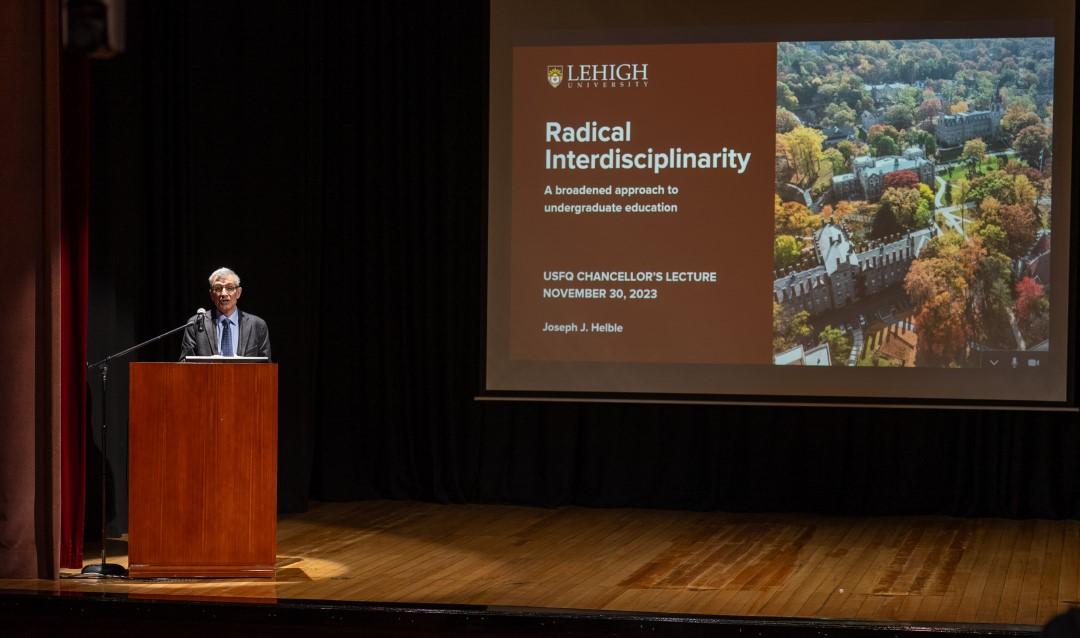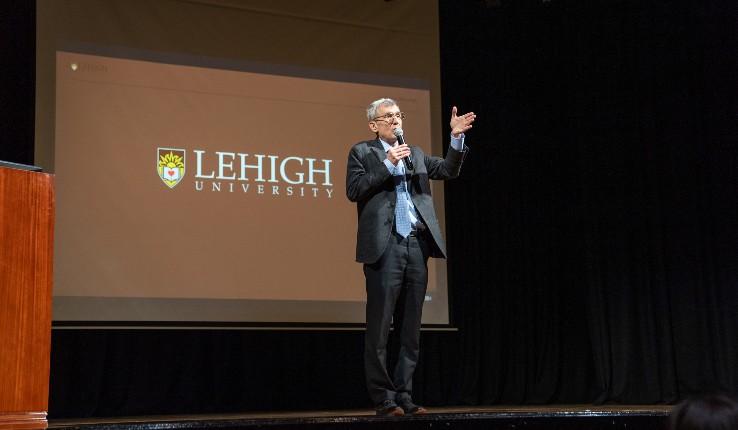Lehigh President Joseph J. Helble ’82 delivered a lecture at Universidad San Francisco de Quito (USFQ) in Ecuador on Thursday, addressing the importance of interdisciplinary education and Lehigh’s commitment to deliver the broadest education possible to students.
A well-rounded education merges instruction in liberal arts, technical arts and business education, he said. Liberal arts as an approach—and not as specific content—is even more relevant today, he added, considering how quickly the world is changing and the emergence of new technologies such as generative artificial intelligence.
Lehigh has a long history of intercollege programs, and there are plans to expand that type of education, Helble said, sharing Lehigh’s goals as outlined in its strategic plan, Inspiring the Future Makers.
“The idea, at a high level, is to do things that are innovative and creative, that are impactful for the world, and that we do collaboratively as a community,” he said. “To innovate, to be very applied in our thinking, to try and solve the problems of today in a very grounded, down to earth fashion, and be collaborative and community focused in all that we do.”
His visit to Quito on Thursday was the first stop on his first overseas trip as Lehigh president. Helble is visiting Ecuador, Colombia, Guatemala and Panama to connect with alumni, students, families and international colleagues. His lecture, called “Radical Interdisciplinarity: A Broadened Approach to Undergraduate Education,” was part of USFQ’s Chancellor’s Lecture Series. The series has featured prestigious speakers from all around the world, including Nobel Laureates, former heads of state, business leaders and distinguished scholars.
Lehigh’s strategic plan has six key initiatives, but the first one, intentionally, is, to develop a “deeply interdisciplinary education,” Helble said.
In fact, Helble said, he is arguing for a radically interdisciplinary education “to expand our understanding of what, for our students, a liberal arts education can and should be.”
“To make sure that the students in the liberal arts and humanities are getting fundamental exposure to concepts from technology and business, and that those concepts are also infusing everything we do in business, and in technology or engineering education. To think about that, not just at the undergraduate level, but at the graduate level as well.”






